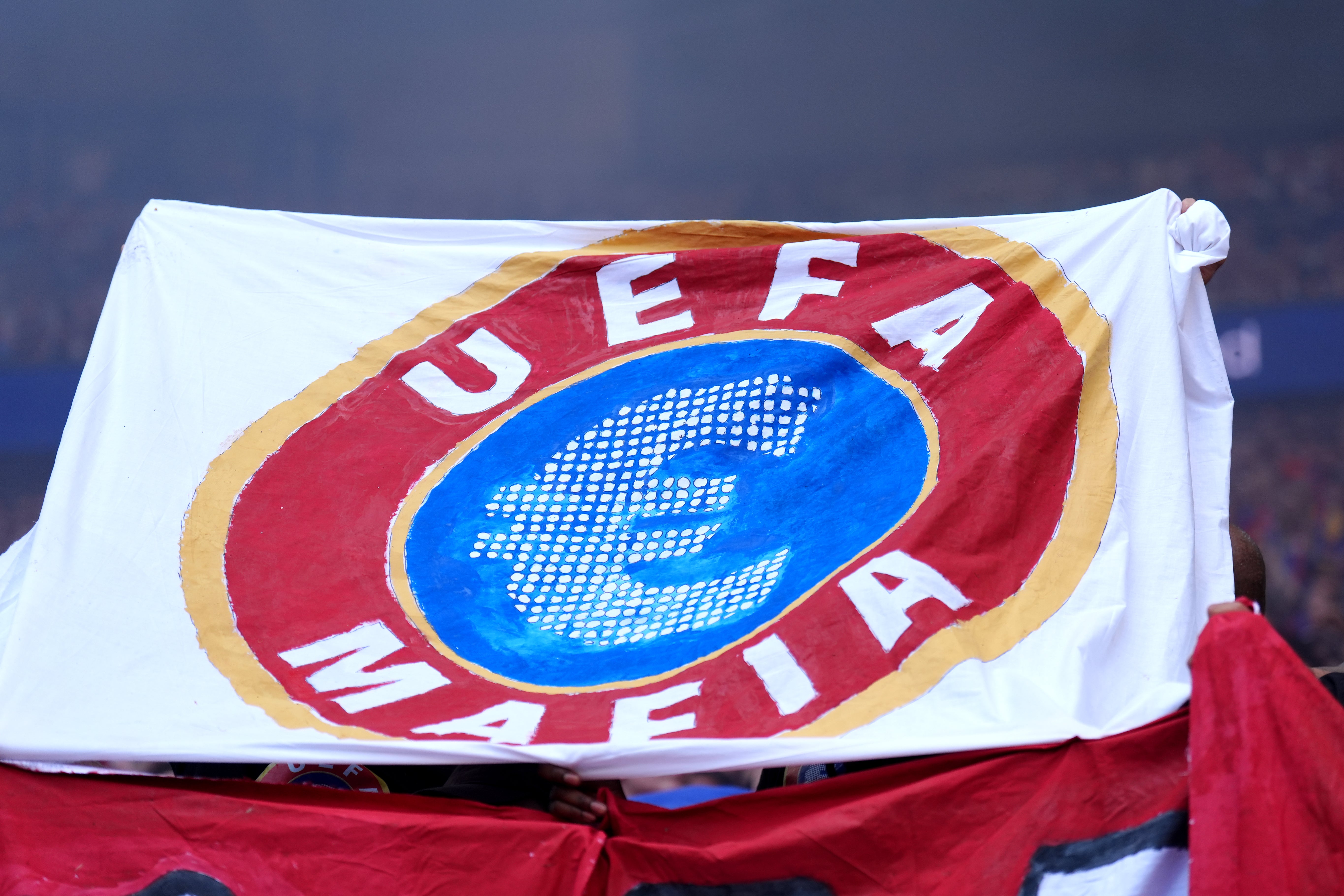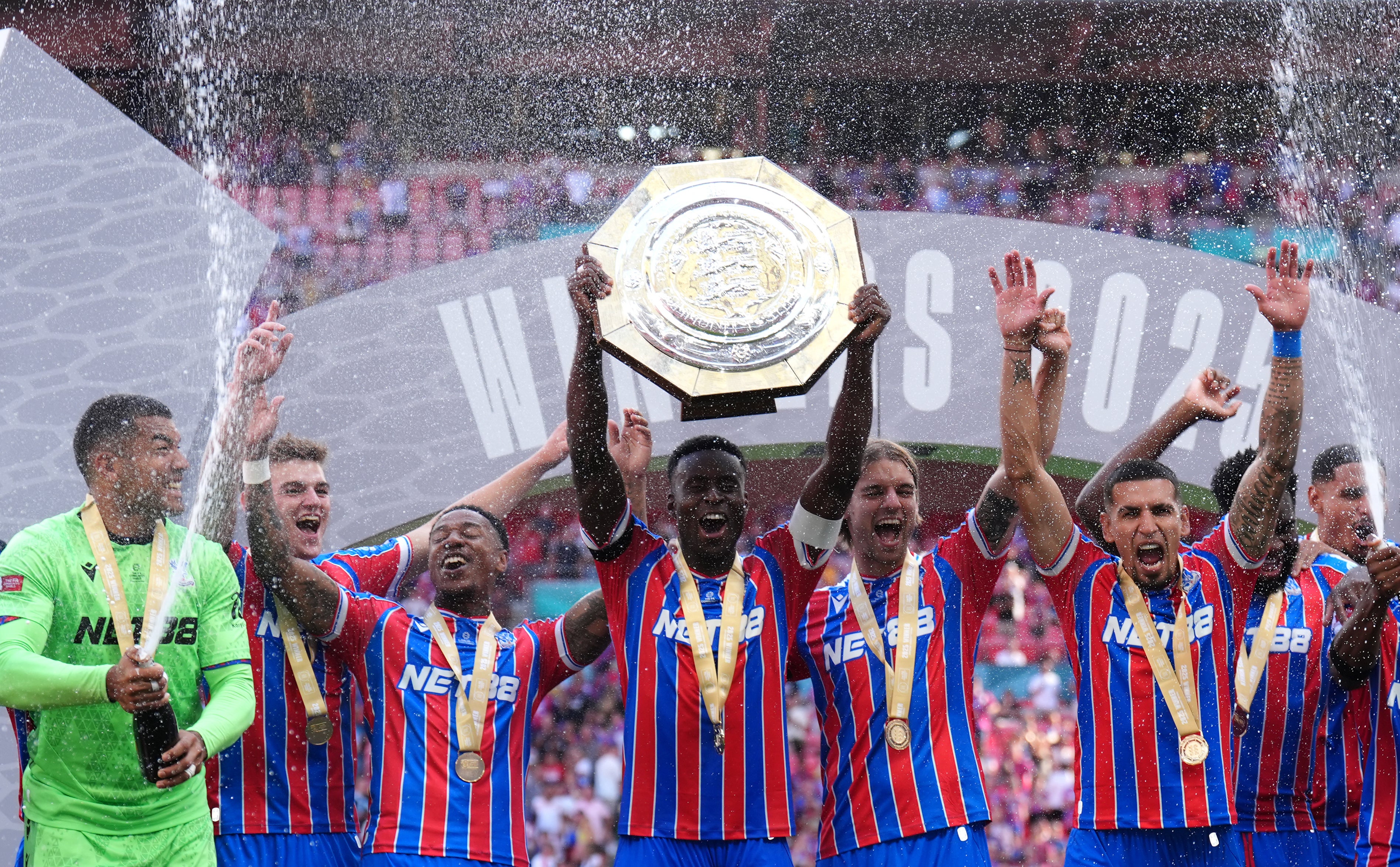As Crystal Palace talk about “shattered hopes and dreams” in a strident statement, specifically criticising the European football power structure, there was some bristling within Uefa. In Nyon, sources say, there had been considerable “satisfaction” that the rigour of their rules on multi-club ownership was adhered to in the Court of Arbitration ruling on Crystal Palace’s appeal. Emotion against the letter of the law, they may claim.
The FA Cup winners missed the 1 March deadline for former part-owner John Textor’s shares to be placed in a blind trust, given his share in Europa League qualifiers Lyon. It was then found that Textor had “decisive influence” over Palace, after chairman Steve Parish was extensively cross-examined by Nottingham Forest’s five-strong legal team over the issue.
Forest stand to be promoted to the Europa League given Palace’s demotion to the Conference League, so had been named as respondents to the appeal. Lyon, the third party in the case, were allowed to keep their Europa League place over Palace due to “sporting merit”.
It is over this issue that the case is understood to have become much more complicated, leading to a close decision, and where an argument can be made that it starts to deviate from the idea of rigorously sticking to the letter of the rules. There was, well, some merit to Palace’s statement on that aspect.
Lyon did not initially qualify for the Europa League, having finished sixth in Ligue 1. They were only elevated from the Europa Conference League once Paris Saint-Germain won the French Cup, so that competition's qualification place went down a league position. By that point, Palace, who finished 12th in the Premier League, had already beaten Manchester City in the FA Cup final to secure one of the traditional routes into the Europa League.
It’s hard to see how the Cas panel decided Lyon’s sporting achievement last season had more “merit” than Palace’s, given the Eagles achieved the direct route into the second-tier European competition. But it is just one more aspect of this case where we await the publication of the full written ruling. For the moment, we can read Palace’s statement. There, they have: described that idea of sporting merit as being rendered “meaningless”; questioned the “unique privilege” of “certain clubs, organisations and individuals” as well as the effects of the legal process, which they argued brings “pre-determined outcomes”; warned of the prospects for “aspirational clubs” and described the idea of a blind trust as a “charade”, particularly when “clubs that appear to have huge informal arrangements with each other are also allowed to participate and even possibly play against each other”.
It was strong stuff, that culminated in the call that “this should be a turning point for football”. It could yet get stronger.
Palace are currently poring over every detail of the case, with the statement doubling down on Parish’s line on Sunday that they will “take legal advice on the next steps”.
Some of football’s most senior legal minds expressed surprise at the outcome, particularly when Palace had appeared to be operating on the understanding that Textor’s stake could be sold after 1 March and the club would be cleared of any issues.
As it was, US investor Woody Johnson purchased those shares on 24 July, meaning the core reason for Palace’s demotion is not even applicable for when the actual football gets underway.
It all leads to one key point out of this entire bizarre episode, which can be stated even before the written ruling is made public, to go with others that can now be said with more force.
It’s hard to see how such a pedantic adherence to ill-suited rules in this one specific incident solves any of the multiple problems that multi-club ownership throws up, which the rules are specifically supposed to challenge. None of this appears to be especially good regulation.

Instead, as one Uefa source maintained to the Independent, it is the European body acting strongly with a relatively negligible issue. All the while, the actual problems with multi-club ownership grow and grow. So how will this stop clubs from smaller countries just being feeders for a wealthier entity, or having their entire identity subsumed, to only point to the most obvious of those problems.
Then again, Uefa has never had control of this issue. As is the case with so much in football now, the problem was hardwired into the game before the authorities had even started thinking about it. Lawyer Mark O’Neill, who is also a doctoral researcher on club ownership regulation, points to the perception of “selective enforcement” of rules.
"Without seeing the full judgment, it is hard to say with certainty what Cas’ reasoning, but the primary frustration for many within the game is the selective enforcement of the MCO rules, more prestigious clubs such as Manchester United and Manchester City have been allowed to compete in Uefa competition using blind trusts to hold or control the other MCO club they are competing against. Blind trusts are a model that is open to abuse, as there are real question marks as to whether there is actual separation of assets and influence in practice. But in Palace’s case, Textor selling his stake and walking away from Palace wasn't considered enough to satisfy Uefa. This just seems a bizarre and illogical application of the rules.”

This decision also comes as CAS’s very position in the game, and relationship with its authorities as the ultimate court of appeal, faces new uncertainty. It was only last week that the European Court of Justice ruled that the body’s decisions can now be reviewed by national courts to ensure they align with European law. That stemmed from a 10-year legal battle between Fifa and Belgian club RFC Seraing over rules on third-party ownership. Palace made sure to mention this in their statement, too.
There is now a chance that they could launch another legal claim for compensation.
For now, they are set to start a Conference League campaign with a play-off against either Norway’s Fredrikstad or Denmark’s Midtjylland. That is likely to be fired by a sense of grievance, and another compelling storyline, as the less “prestigious” competition itself offers a route into the Europa League.
It’s easy to see how all of the talk around that will go, even if it’s difficult to see how Palace are where they are.
Transfer news live: Liverpool given Isak boost, Spurs target Eze, Man Utd learn Donnarumma fee
How Crystal Palace’s failed fight to stay in the Europa League unfolded
Sporting merit rendered meaningless – Palace hit out at Europa League demotion
Tottenham ready to beat Arsenal and sign Eberechi Eze after opportunity emerges
Sacked referee David Coote given eight-week ban for Jurgen Klopp comments







